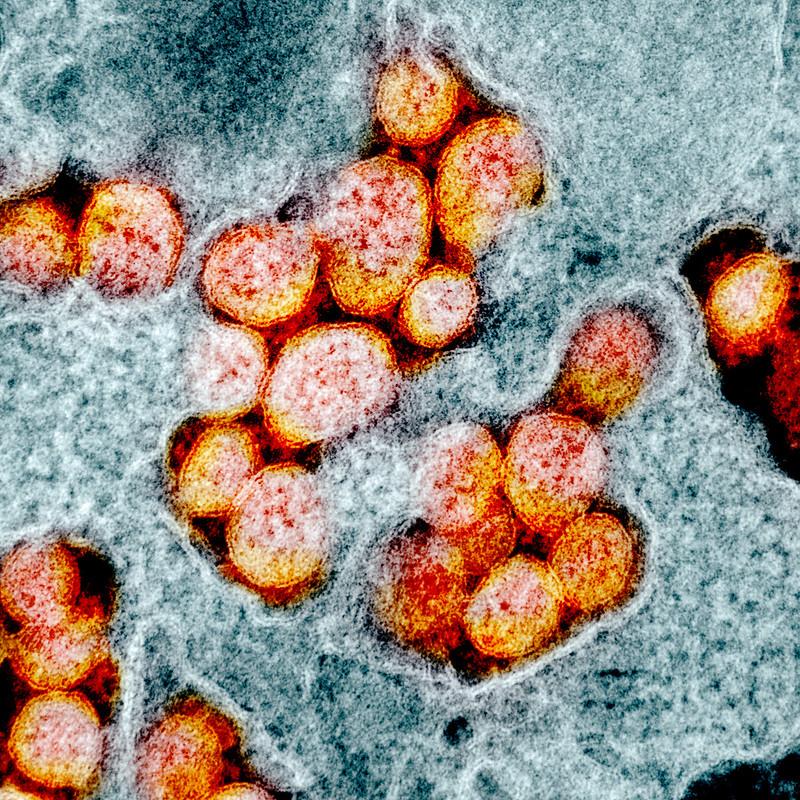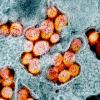Among the takeaways from a large COVID-19 research and innovation meeting led by the World Health Organization (WHO) this week, the vaccine pipeline is healthy and scientists are eager to learn more about the impact of social distancing and other nonpharmaceutical interventions.
As the 2-day online meeting wrapped up today, the global COVID-19 total reached 10,776,482 cases, and 517,956 people have died from their infections, according to the Johns Hopkins online dashboard.
Scientists pause to assess research landscape
At a media briefing at the close of the meeting, Soumya Swaminathan, MD, the WHO's chief scientist, said the goal of the meeting wasn't to set policy but to take stock of science developments, which have come at a rapid pace, resulting in about 500 to 1,000 publications a day.
When the group first met in February to come up with a research and development roadmap to shape the scientific priorities, 400 researchers took part. But at this week's meetings, 1,300 scientists from 93 countries participated in meetings and discussions that covered nine different work groups on topics ranging from epidemiology to ethics.
Ana Maria Henao Restrepo, MD, unit head of the WHO's research and development blueprint, said during a session on vaccines that researchers involved in 15 of 17 COVID-19 vaccine trials shared details about their clinical trial designs, which she called an excellent exercise in transparency.
She said the vaccine pipeline is healthy, with about 150 in development and with more moving to clinical trials. Restrepo said the group won't know which ones are most promising until efficacy results are in.
Epidemiological aspects of the virus were hotly debated topic, Swaminathan said, noting that a meta-analysis review of remdesivir trials is expected in the weeks ahead, which will help clarify mortality benefits associated with the antiviral.
A purpose of the meeting was also to identify research gaps, and Maria Van Kerkhove, PhD, the WHO's technical lead for COVID-19, said one of the interest areas was to evaluate mitigation interventions as the world waits for a vaccine. She also noted that more details are needed on how measures such as lockdowns are lifted, which will help guide public health recommendations.
WHO urges caution for Africa
The WHO's African regional office today urged countries to take steps to prevent a surge in COVID-19 activity as they reopen borders and airspaces. In a statement, it said African countries swiftly imposed travel restrictions, with 36 closing their borders and eight suspending flights to high-transmission countries.
So far, four countries have resumed commercial flights, and 15 countries in the Economic Community of West African States are expected to open their airspace on Jul 21, the WHO said.
"Air travel is vital to the economic health of countries," said Matshidiso Moeti, MBBS, WHO Regional Director for Africa. "But as we take to the skies again, we cannot let our guard down. Our new normal still requires stringent measures to stem the spread of COVID-19." She urged countries to assess their epidemiological situations while weighing the costs and benefits of reopening travel and to have systems in place at entry points, including airports.
She also noted that resuming commercial flights will help ease the delivery of crucial COVID-19 supplies, including test kits and personal protective equipment.
In other African developments, COVID-19 activity has increased 28% in the region over the past week, with the region experiencing its daily high total of more than 10,000 cases on Jun 27 and its highest number of daily deaths (172) on Jun 30, according to the WHO African regional office's latest situation report. About 43% of the rise in cases reflects illnesses from South Africa, the region's hardest hit country.
Seychelles, which had gone 78 days with no cases, reported a cluster of cases linked to a sea crew arriving on two charter flights.
Latest European risk assessment
In its latest risk assessment today, the European Centre for Disease Prevention and Control (ECDC) said that although cases in the region have dropped 12% over the past 2 weeks, most countries are still experiencing community transmission and some are reporting fresh increases in cases, while others are reporting notable localized upticks.
Countries reporting more than 10% increased incidence in COVID-19 cases over the past 2 weeks, compared with the previous 2 weeks, include Bulgaria, Croatia, the Czech Republic, Luxembourg, and Romania. Meat-processor outbreaks have been reported in Germany, Ireland, and the Netherlands, and mine-linked outbreaks have been reported in the Czech Republic, Poland, and Sweden.
The reasons behind resurgences vary and include increased testing, real increases in cases following eased restrictions, large local outbreaks, and imported cases, the ECDC said. The risk is moderate for the general population in countries with ongoing community transmission. For those without extensive testing and contact tracing that ease distancing measures while community transmission is still under way, the ECDC considers the risk to be high.
In other global developments:
- Oman boosted its hospital capacity, including setting up a field hospital, following a surge in activity that has been building over the last 6 weeks, Reuters reported.
- Mexico, an Americas hot spot that reported 648 deaths yesterday now has more fatalities than Spain, according to totals on the Johns Hopkins online dashboard.
- In Japan, Tokyo reported 107 new cases yesterday, its highest number in 2 months; Reuters Health officials said about 70% of the new cases are in people in their 20s and 30s.





















